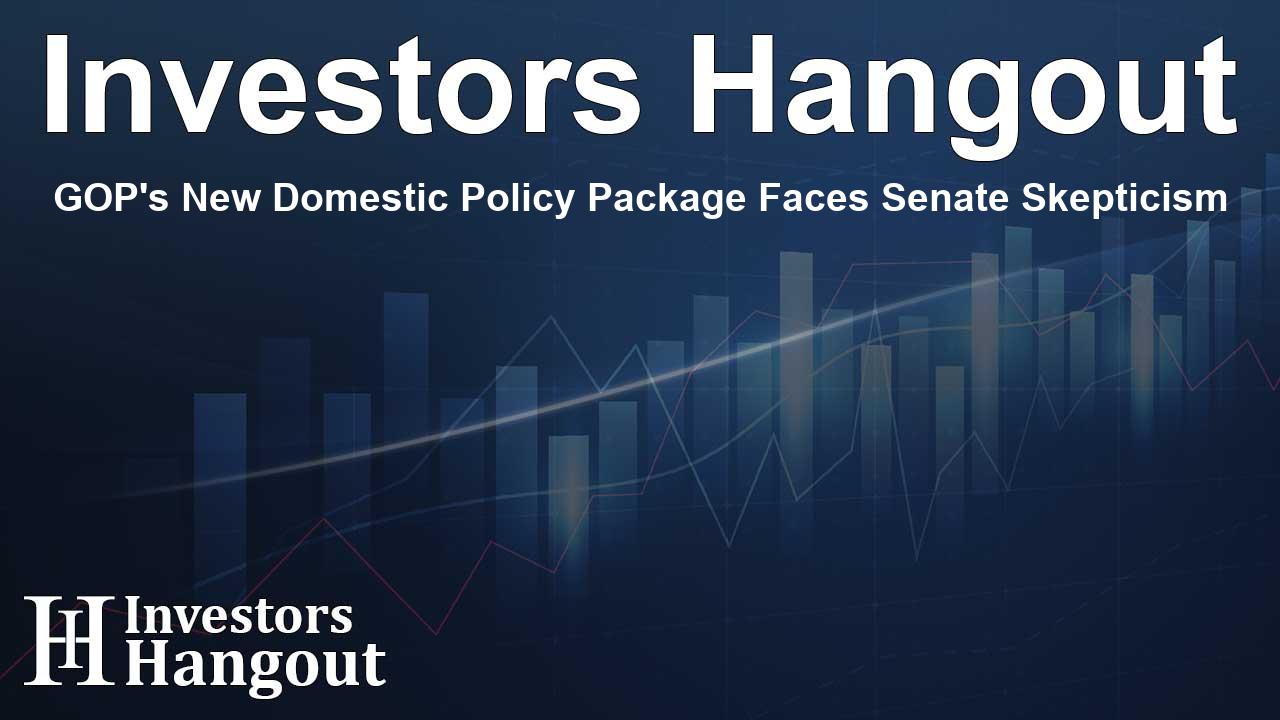GOP's New Domestic Policy Package Faces Senate Skepticism

GOP Eyes Second Big Reconciliation Bill
After the signing of President Donald Trump’s recent significant domestic policy initiative, House Republicans have begun discussions for a follow-up package. However, key Senate members are voicing concerns regarding its viability.
Senate Republicans Show Doubts
The White House is engaged in dialogue about a potential new reconciliation bill that would bypass traditional legislative hurdles. There has been a notable formation of a working group named ‘Reconciliation 2.0’ among conservative lawmakers, intending to craft recommendations for upcoming legislation during the summer recess.
Senate Finance Committee Chair Mike Crapo has indicated a readiness to evaluate up to 200 tax proposals that did not make it into the first major bill. Nevertheless, numerous senators remain puzzled about what could feasibly be incorporated in this subsequent reconciliation effort, questioning its overall political viability.
White House Guidance Lacking
Amidst the Senate's hesitations, White House officials have not yet provided specific policy directives for lawmakers to consider for this potential second package. Senators Roger Wicker and Lindsey Graham have communicated their frustration, noting the absence of guidance from the administration as they explore these options.
Concerns Over National Debt
The ongoing discussions regarding a new reconciliation bill occur in the context of warnings from economic experts about the potential repercussions of increasing national debt. Recent commentary from notable financier Ray Dalio cautions that previous legislative actions could elevate the national debt significantly, perhaps leading to severe economic challenges in the future.
The aforementioned bill received a mixed response, including proposed tax adjustments and a commitment towards a $200 billion increase in Medicaid funding, as highlighted by Dr. Mehmet Oz. This raises significant questions about the sustainability of future domestic policy initiatives under the shadow of mounting national debt.
Future of Domestic Policy Still Uncertain
As the debate progresses, the prospects for a second large domestic policy package remain uncertain. Policymakers are grappling with how best to approach a potential reconciliation bill while balancing economic concerns and political realities.
Frequently Asked Questions
What is the current status of the proposed reconciliation bill?
The bill is in discussion phases, but doubts from Senate GOP members hinder its progress.
Who is leading the efforts for the new policy package?
House Republicans alongside the White House are discussing the new package, initiated by the ‘Reconciliation 2.0’ working group.
What are the primary concerns regarding the new bill?
Concerns center around the national debt implications and the lack of clear policy guidance from the White House.
How might the new bill impact national debt?
Experts warn that a new large-scale bill could exacerbate the already rising national debt beyond sustainable levels.
What specifics are still unknown about the new policy proposals?
Lawmakers have not yet received definitive policy outlines or goals from the White House regarding the proposals.
About The Author
Contact Ryan Hughes privately here. Or send an email with ATTN: Ryan Hughes as the subject to contact@investorshangout.com.
About Investors Hangout
Investors Hangout is a leading online stock forum for financial discussion and learning, offering a wide range of free tools and resources. It draws in traders of all levels, who exchange market knowledge, investigate trading tactics, and keep an eye on industry developments in real time. Featuring financial articles, stock message boards, quotes, charts, company profiles, and live news updates. Through cooperative learning and a wealth of informational resources, it helps users from novices creating their first portfolios to experts honing their techniques. Join Investors Hangout today: https://investorshangout.com/
The content of this article is based on factual, publicly available information and does not represent legal, financial, or investment advice. Investors Hangout does not offer financial advice, and the author is not a licensed financial advisor. Consult a qualified advisor before making any financial or investment decisions based on this article. This article should not be considered advice to purchase, sell, or hold any securities or other investments. If any of the material provided here is inaccurate, please contact us for corrections.
